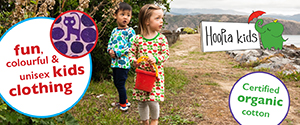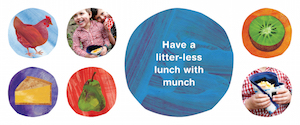biting
Biting is fairly common in young children but is very troubling to parents. Biting is often very painful and frightening for the child who is bitten. It can also be frightening for the child who bites, because it upsets the other child and makes adults angry. Biting can make the child who bites feel very powerful because of the strong reaction and attention that it brings. This feeling of power can also be frightening for children because they need to feel secure and know that feelings can be managed.
Article provided courtesy of Parenting SA
What causes biting?
There are four different kinds of biting.1. Experimental biting
Biting is one way that infants explore the world. They put everything into their mouths. At some stage many infants will try biting the breast when they are feeding or biting a parent or carer. Sometimes it almost seems like a game to the child.What parents can do
- Don’t let children see that you think it is funny or a game. Say firmly: ‘No! Biting hurts.’ Remove them quickly from the breast or arm or whatever they are biting. Infants and toddlers will usually soon learn not to bite in this situation. When children are teething they need lots of things to bite onbecause often their gums feel sore. Give them things that they can safely bite on, eg teething rings.
2. Biting from frustration
Frustration happens when children get into situations that they can’t handle. Children under about three are usually not ready to play in a cooperative way with other children in groups. If they are in a group and another child takes their toy they may respond by hitting or biting. They have not yet learned other ways to cope. If biting gets a strong response, which is likely, they will see that it is successful and may try it again.What parents can do
- If you can, get in first and avoid situations that your child cannot cope with. Try to keep group play to short times and small groups. Watch for times where two children might want the same toy and step in first to distract them.
- Young children need close adult supervision, especially if they are known to bite. Even the best supervision, unless it is one-to-one, will not prevent some children from getting in a quick bite.
- If your child does bite, say firmly ‘We don’t bite, biting hurts’ and remove him quickly from the situation. Keep him with an adult for a while. Your child needs you to understand his feelings and he needs your help to manage them. This takes a long time to learn. Feelings are very hard for young children to control. You might say something like ‘You were very cross when Peter took your truck, but you must not bite him’ or ‘You wanted to play with the truck. If you feel cross tell me and I will help you, but we don’t bite’.
3. Biting because of feeling powerless
Often it is the youngest child in the family who bites. The older children seem stronger, can talk and are more able to get what they want - the youngest can feel small and powerless. The same can happen in groups and a child can then discover that biting is a way of getting some power.What parents can do
- The first step is to try to make sure that your child’s needs are protected so she doesn’t need to bite. Make sure that she is not getting the worst of the deal.
- If she is playing with older children, explain to them how the younger one might be feeling. Get their help to make things more equal.
- If biting happens between very young children they need constant adult supervision. Try to get in first and make sure that the needs of the less powerful child are taken care of.
- Make separate play places for older and younger children if needed.
- If your child has already bitten, quickly tell her that she is not to bite and remove her from the situation. Keep her with you for a while before letting her return.
4. Biting under stress
Biting often occurs when a child is under emotional stress that she cannot handle. This biting is an expression of distress and pain. Your child may seem very upset or angry. Young children can find it difficult to know what they are feeling. They just act!What parents can do
- Try to find out what is causing the stress. Keep a watch on when the biting happens and what is going on just before. For example, one child always bit someone when a new child arrived at the playgroup and took the leader’s attention. Another child started biting soon after his much loved grandfather had died.
- It isn’t always possible to remove the cause of the stress. If you can work out what is causing the biting you may be able to prevent it.
- If biting under stress, children will need help to find other ways to express their feelings such as through play and stories.
- When the child bites, remove him from the situation straight away and respond as above. Sometimes it helps to offer something else to bite on. Offer as much love and affection as you can at other times.
- Ask other parents to support you in preventing your child from biting other children in group settings. Ask that they be firm and matter of fact ‘No, we don’t bite’.
- Remember to comfort the child who has been bitten, whatever the reason for the bite.
Reminders
- Plan ahead if possible to avoid situations where you know your child might bite.
- Respond quickly, firmly and calmly to biting. >> Show your disapproval without anger, remove him from the situation and help him find another outlet for his feelings.
- Don’t bite back. This is terrifying for a child and teaches the very thing you don’t want him to learn.
- Give your child positive attention every day to build up his self-esteem.
Article provided courtesy of Parenting SA
advertisements






| 1. 10 candles to light your fire - how much fun can you fit on your cake?! 2. Hoopla kids - Scrumptious looking gears to brighten your kids' wardrobes 3. How to dress your child for a special occasion 4. Fruity pineapple flamingo party - Sweet, bright and sunny 5. Spanish Baby Bites- European sleeping bags that are unique and adorable |
|
|
| 1. Upcycling baby clothes - Turn your most treasured items into something that lasts 2. Grace's ballet party - celebrate your tiny dancer 3. After the birth - What to expect when you've welcomed your bundle of joy 4. Lalaloopsy party - How to craft your party around a centrepiece 5. 10 candles to light your fire - how much fun can you fit on your cake?! |
|
|
| 1. Scone peapods - the cutest and most delicious vegetables around 2. Lalaloopsy party - How to craft your party around a centrepiece 3. Superkids Scroggin- An innovative lunchbox idea 4. Jeffrey's Lego Party - totally Legotastic 5. Best indoor playsets - Unbelievable fun most of us can only dream of! |





